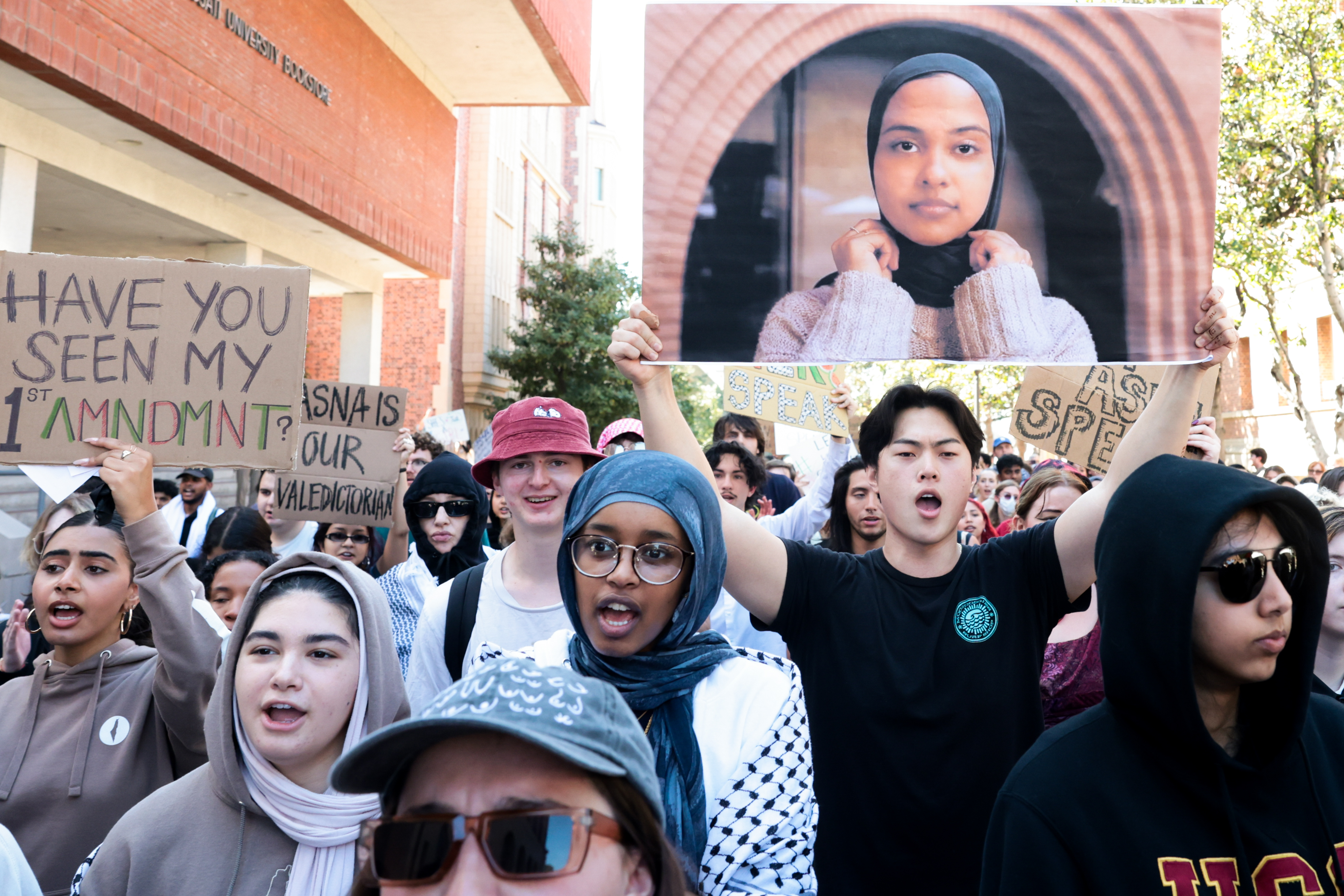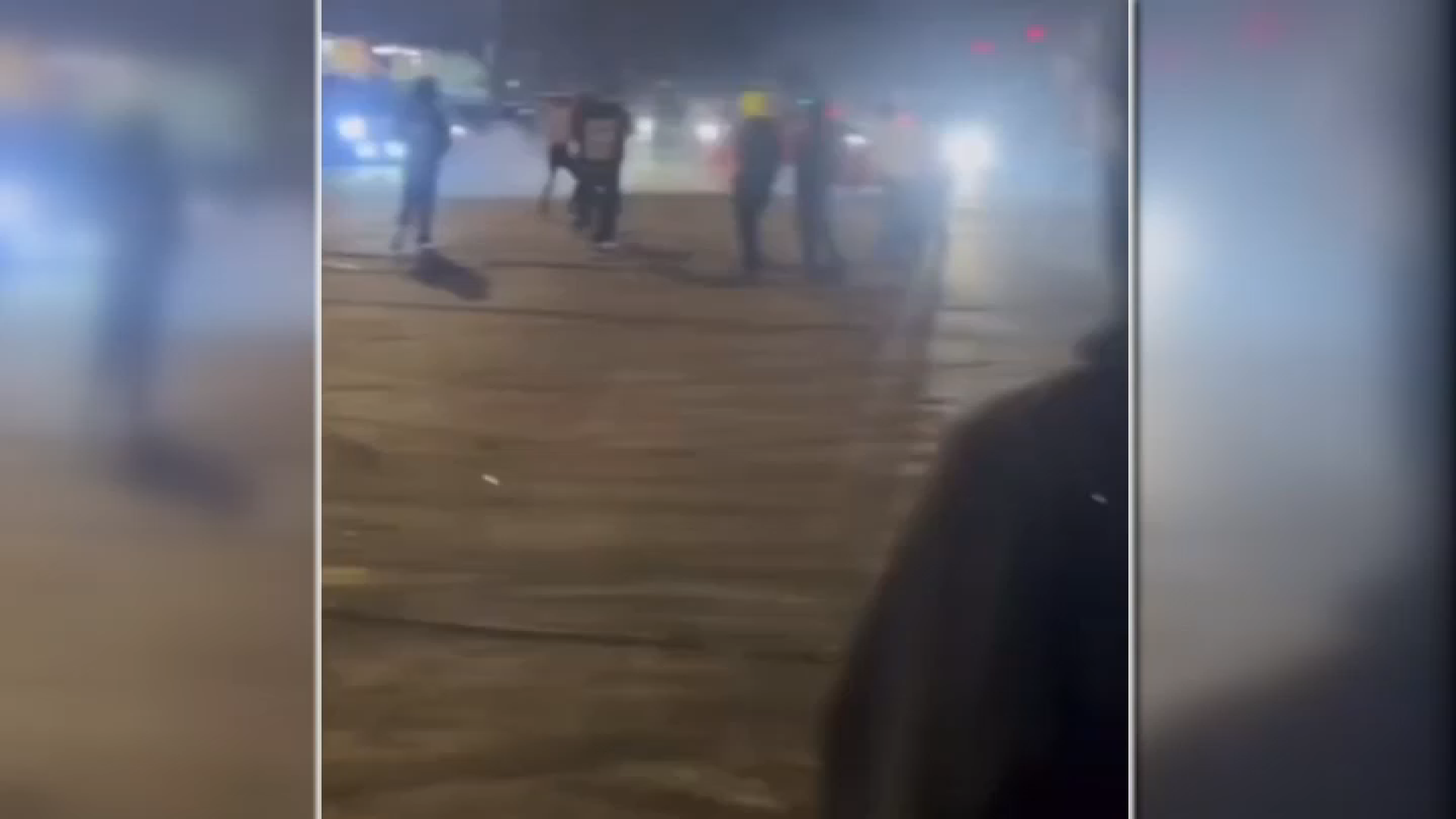Gov. Jerry Brown's latest attempt to reduce the state prison population is a ballot initiative unveiled Wednesday that aims to free certain felons earlier and have fewer juveniles tried as adults.
If California voters approve it in November, the measure would increase sentencing credits for inmates who complete rehabilitation programs, the Democratic governor said.
The proposal would also allow nonviolent felons to seek parole after they have completed their base sentences and require judges instead of prosecutors to decide if juveniles should be tried in adult court.
"This affects thousands of inmates and it is significant," Brown said on a conference call, backed by law enforcement officials and a representative of the Catholic church where Brown was once a seminarian.
It would alter the framework he helped create when he was governor in the 1970s and 1980s, one that he said has become too "mechanical" with rigidly prescribed sentences and a "crazy quilt of many different credits" that help determine when inmates are released into society.
The current system has produced unintended consequences, he said, including the removal of incentives for inmates to improve themselves.
Some law enforcement officials were immediately skeptical, while reform advocates were jubilant, saying it would encourage prisoners to complete rehabilitation programs in hopes of obtaining earlier release.
Local
Get Los Angeles's latest local news on crime, entertainment, weather, schools, COVID, cost of living and more. Here's your go-to source for today's LA news.
"Sheriffs are likely to have concerns," said California State Sheriffs' Association spokesman Cory Salzillo, though he said the group will study the proposal.
Los Angeles Police Chief Charlie Beck and San Diego County District Attorney Bonnie Dumanis joined Brown on the conference call, along with representatives of the Chief Probation Officers of California.
California currently keeps "the wrong people incarcerated for the wrong period of time," said Beck. "I think that this will effectively open up bed space for those who richly deserve to be there."
Dumanis said the changes would encourage inmates to participate in rehabilitation programs that would make prisons and communities safer, where under current law "they get credit for breathing."
Brown said the proposals build on federal court orders requiring California to reduce its prison population.
"Some people will be alarmed and ask, 'Aren't we taking a risk by letting people out of prison before they've served all their time?' And that is a risk," said Laurie Levenson, a Loyola Law School professor and former federal prosecutor. "But I think the governor is willing to make it because we can't put everyone in our prisons anymore."
The governor, who is termed out of office in 2018, has $24 million in his campaign account that he can spend on political campaigns. He refused to say if he would use it for this campaign, citing the legal separation between government and politics.
Brown's plan would allow nonviolent felons to seek parole after they have completed their base sentences, without enhancements for things such as gang involvement or firearms possession that can add years to a prison term. That is expected to make about 7,000 of the more than 127,000 inmates immediately eligible for parole hearings, according to those briefed on the governor's plan.
Stanford Law professor Joan Petersilia said about 20,000 inmates are currently serving time for drug or property crimes and are the most likely candidates.
"There's a lot of people who are labeled nbsp;as 'nonviolent' offenders, who in reality did something very detrimental to society, like selling a stolen weapon. So I think that, you know, I'll probably be having some conversations with the Governor in the near future to show him my concerns about this initiative," said Assemblyman Mike Gatto, D-Burbank.
It also would require judges, instead of prosecutors, to decide if juveniles should be tried in adult court. Prosecutors currently decide each year to send about 600 juveniles to adult courts for trial.
That gives them "an enormous amount of power" that should be reserved for impartial judges, said Lizzie Buchen, an advocate with the reform group Californians United for a Responsible Budget.
But she was skeptical of giving increased discretion to the Department of Corrections and Rehabilitation to award more sentencing credits. The department already has that authority and hasn't done enough with it, she said, while Brown's entire proposal should also be applied to violent and serious offenders.
Brown said he considered including violent and serious felons, but "it became a nonstarter" in discussions with law enforcement officials.
The initiative that Brown is proposing would further reduce the state's prison population, which is under a cap ordered by a panel of three federal judges with backing from the U.S. Supreme Court.
The state is currently under the head count limit thanks in part to voter-approved ballot measures that reduced penalties for career criminals and those convicted of certain drug and property crimes. But that population is expected to grow again, and the state is making do now by sending inmates to out-of-state prisons and keeping them in rundown facilities within California. Lawmakers split on the proposal.
"Weakening the criminal justice system will only increase the victimization of California citizens," state Sen. Jim Nielsen, R-Gerber, who previously headed the state parole board, said in a statement.
But Sen. Loni Hancock, D-Berkeley, said Brown's proposal tracks a national movement to reduce mass incarceration and could free up funds for education, health care and other voter priorities.
"We've had a mammoth prison system sucking up the money that could go to those things," she said.



